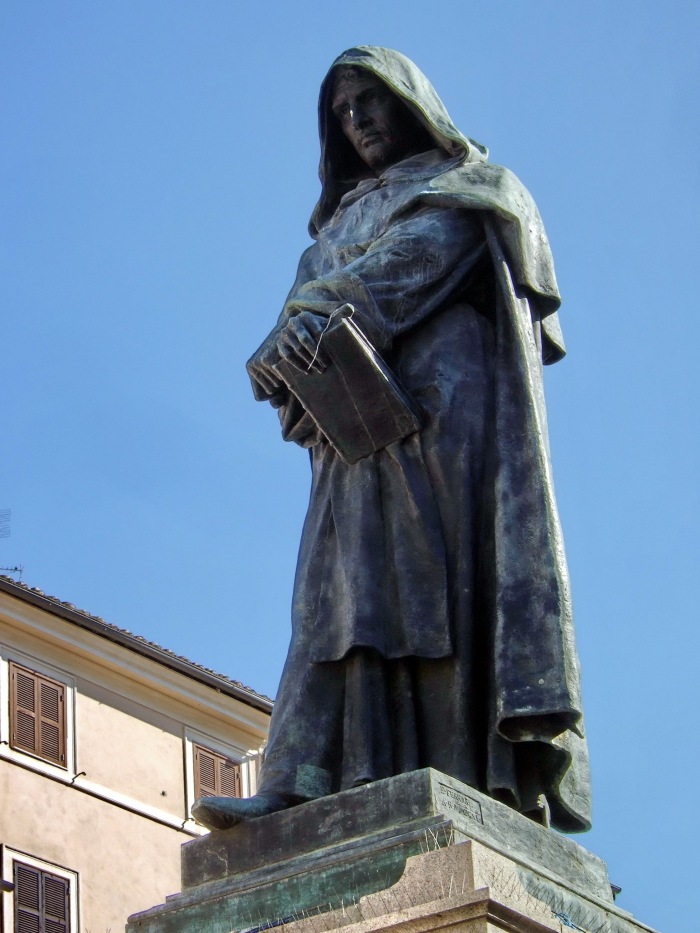The Foundation’s Name

giordano_bruno.jpg
Robert Babiak, pixelio.de
In 1600 Giordano Bruno was burnt at the stake by the "Holy Inquisition", after seven years of bleak imprisonment. He had dared to challenge the church's view of the world and the special position of humanity and the earth, by proposing a theory of an infinite universe and multiple worlds. His ideas were even more far-reaching than those of Galileo Galilei, who was tried by the Inquisition not long after Bruno's death (fortunately with a more lenient result).
Bruno's methodology did not conform to that of modern science, and some of his mystical concepts are, in light of modern discoveries, very hard to understand. Nonetheless, the validity of many of his theories is impressive, not only in the area of cosmology. His philosophy was far ahead of its time, and covered basic principles of a non-dualistic, naturalistic view of the world, as well as reflections on the idea of biological descent and on evolutionary-humanist ethics, including the rights of non-human organisms. Essential impetus for the development of modern criticism of religion can also be traced to Bruno.
All of these factors led to the decision to name the foundation after Giordano Bruno, one of the great tragic heroes in the history of science and emancipation. Critical research requires not only intelligent thought, but also the courage to stand up for the truth.
»Those who want to judge properly must be able to let go of all the habits of belief they have accumulated since their childhood.
The popular belief is not always the one closest to the truth.«
(Giordano Bruno)
